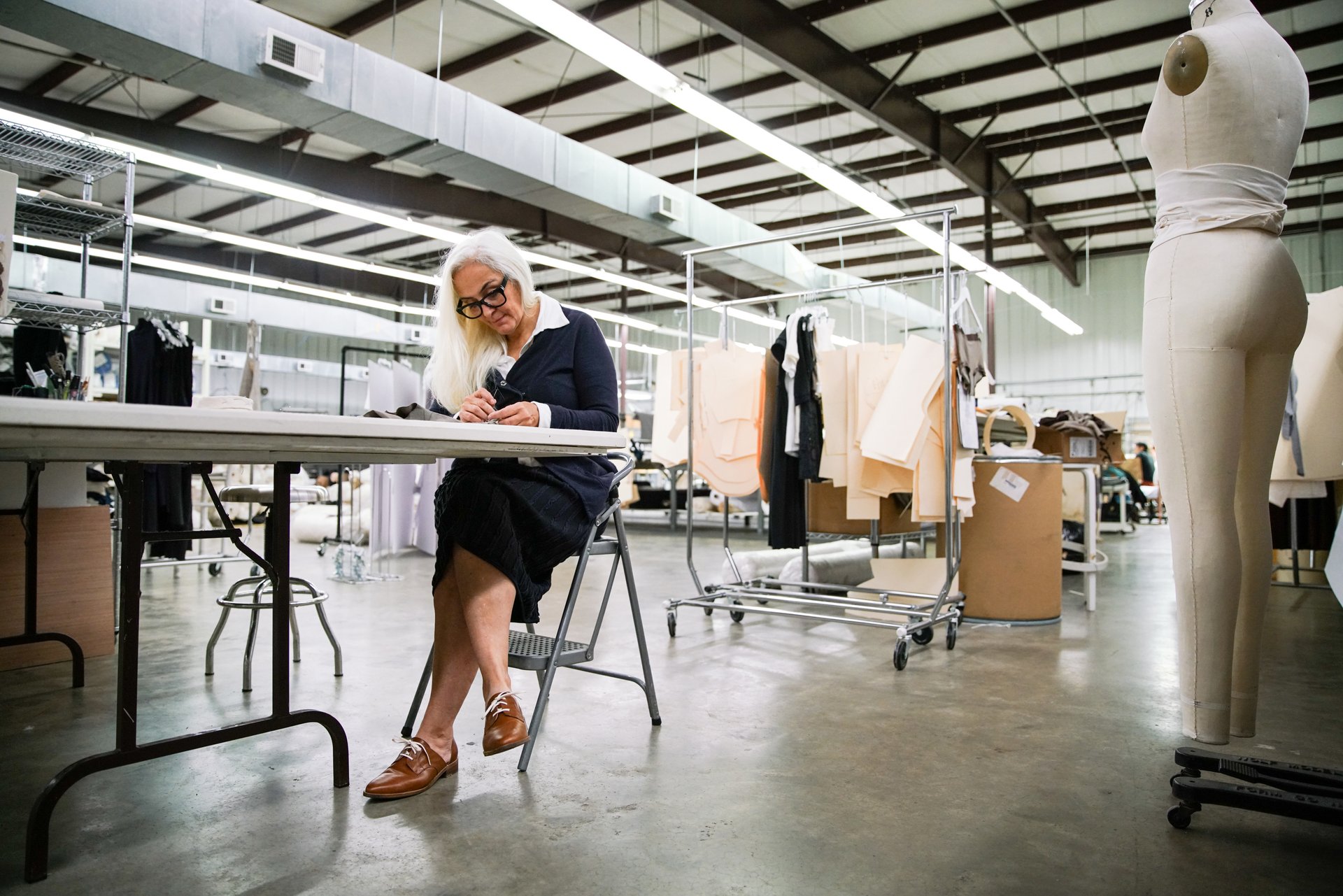Sustainability is part of the Alabama Chanin ethos and drives Founder and Creative Director Natalie “Alabama” Chanin. It’s been a longtime passion of hers, having studied Environmental Design at North Carolina State University. In 2013, the interest led to her winning the CFDA/Lexus Eco-Fashion Challenge, which identified and celebrated designers in sustainable fashion (it has since evolved to the CFDA + Lexus Fashion*Initiative). To celebrate our CFDA Loves Sustainability shop at Fred Segal, we spoke to Chanin about her brand and the importance of being eco-conscious.
What inspired you to embrace sustainability in the first place?
Alabama Chanin began as 200 one-of-a-kind T-Shirts that were made from up-cycled shirts. It’s always been important to me. But to become a 100 percent sustainable company takes true commitment, and it’s always an uphill battle. I was once involved in the fast fashion community and saw first-hand the damage it is doing to our planet and the people that live on it.
How do you incorporate sustainable practices into your design process, and the way you run your company?
All of our garments are made-to-order using lean method manufacturing. This eliminates unused stock and cuts down on the resources we utilize to create every product. Additionally, we strive to be a zero-waste facility—no fabric scraps go unused. We constantly challenge ourselves to be innovative in our design and development process.
Is the design approach for sustainable product different? How so?
It requires deep thought and intention. We approach a sustainable production model from the ground up (literally). To produce a sustainable product, you must think of where the raw materials come from and how they were grown or created, you must think about all the uses of the product, the most efficient and sustainable way to produce it, and the life of the product beyond your facility’s walls. For us, it’s working with organic cotton or recycled materials. It’s about creating an experience for our customers where they understand the worth and quality of our products.
What’s your advice for designers looking to become more sustainable?
Look first at your materials.
Why is sustainability so important now, more than ever?
Sustainability relies on the human skills necessary to manipulate materials. It’s important to remind people that everything comes from somewhere, someone. We encourage consumers ask these questions and to challenge designers and manufacturing to create in a sustainable, ethical, and healthy way. As we work to honor the relationship between materials, products, and individuals, we create a sustainable community and as a result, an enriched product for not only the consumer, but the planet.



